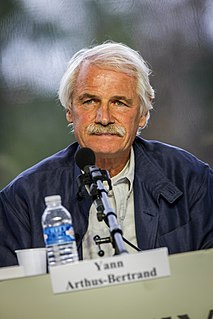A Quote by Bill Gates
The US really has to get out in front. We are the biggest per person, by a substantial amount, greenhouse emitters, and we give the most foreign aid, not per person but in absolute.
Related Quotes
We [US] are the biggest per person, by a substantial amount, greenhouse emitters, and we give the most foreign aid, not per person but in absolute. This is another issue where hopefully we will take a long-term approach which, even though we sometimes have a hard time doing that, it's easier for us, as a rich country with this kind of scientific depth, than it is for the poor countries who will suffer the problems.
Here in the United States we're now consuming about three gallons of petroleum per person per day. That's twenty pounds of oil per person per day. We only consume about four pounds of oxygen per person per day. We're consuming five times more oil each day, here in the United States than we are oxygen. We've become the oil tribe.
The fact is that seven per cent of the global population emits 50 per cent of greenhouse gas emissions, and the proportions are the same for the use of energy and raw materials, meat, wood, etc. Simply put, an infinitesimal minority consumes the most and imposes damage on the overwhelming majority, while asking it to change.
In the Java Sea in Indonesia, I have seen fishers going out in the morning, six of them going out and coming back with five pounds of fish. That is the end point, a pound of fish per person per day to sell for rice. That's where fisheries go if you let it happen. That's where it stabilizes. These people cannot feed their families.
When we give help to the poor, we are not doing the work of aid agencies 'in a Christian way'. Those are good, it is a decent thing to do - aid work is good and quite human - but it is not Christian poverty, which St. Paul desires of us and preaches to us. Christian poverty is that I give of my own, and not of that which is left over - I give even that, which I need for myself, to the poor person, because I know that he enriches me. Why does the poor person enrich me? Because Jesus Himself told us that He is in the poor person.



































